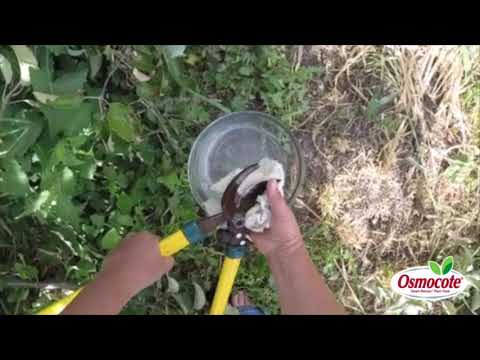Does a mild winter mean more pests in the spring?
Views: 6238

If I could look into my entomological crystal ball… I would be a rich woman! Actually, I would be able to tell gardeners, especially those back east, what to expect after their astoundingly mild winter.
Yes, I do realize they are in the grips of a major snow storm at the moment. But overall it’s been a pretty easy season. Actually, according to the National Oceanic and Atmospheric Administration, pretty much the entire eastern half of the United States experienced above average temperatures. Many set new records. Most states in this region record double digit temperatures that were higher than normal.
What to expect after a mild winter
So what does this mean for the garden? Are there going to be myriads of insects looking for meals earlier than normal in the season? Not surprisingly, the answer isn’t black and white. Initially, my thought the insects would have an easier time overwintering, and subsequently appear in greater numbers in the spring. Based on our issues with wasps and hornets last year, I figured this could translate to other pest species. It turns out that isn’t necessarily the case.
The reality is the warmer than normal winter might work in gardeners’ favor this year. In December my stepmother said it looked like some of her trees were budding out, which of course is a concern since the chances are good that winter is far from over in the December. Well, it’s the same with some insects. If it’s warm, some species emerge. But – and here’s the really good news – when they are wide eyed and bushy tailed in December or January, there’s nothing for them to eat!
So yeah, they might emerge early, but they probably won’t last long. This means there could be fewer numbers of those insects who emerge early because their life cycle is interrupted by starvation. The ones that will do the best through the season are those insects that hold tight. And, according to what I understand, predatory insects like mantises and lacewings aren’t as likely to peek out early and should be a full force in the spring. Potentially, this means fewer problematic insects, at least for a while.
Insects
The one way it might work for the insects’ favor is if the weather pattern holds, and people begin planting their gardens early since this will provide a food source for the early risers. Not only will they be out early, they will have a ready food supply. And if they survive they will have a longer season to reproduce. So even if the weather is lovely early on, you might want to be conservative in what you plant, and definitely take proactive measures to reduce the population of those that do arrive early.
And, not to be the bearer of bad news, but a mild winter most likely does mean an increase in the tick population, which is not something anybody wants to hear. The regions where ticks are a problem are bigger than ever, and an easy winter sure doesn’t help. According to the CDC, they receive approximately 300,000 reports of the disease each year, and they fully admit that not all cases are reported. That’s no fun at all.
So those who’ve been graced by a mild winter, the good news is it doesn’t mean the gardening season will be a nightmare. Besides less snow to shovel, you might even have less pests to contend with during the spring.
Meet Amy Grisak
Amy is a freelance author and photographer in Great Falls, MT who specializes in gardening, foods, and sustainable agriculture. She provides information on every kind…
Amy's Recent Posts

Watch for Fungal Diseases on Penstemon








